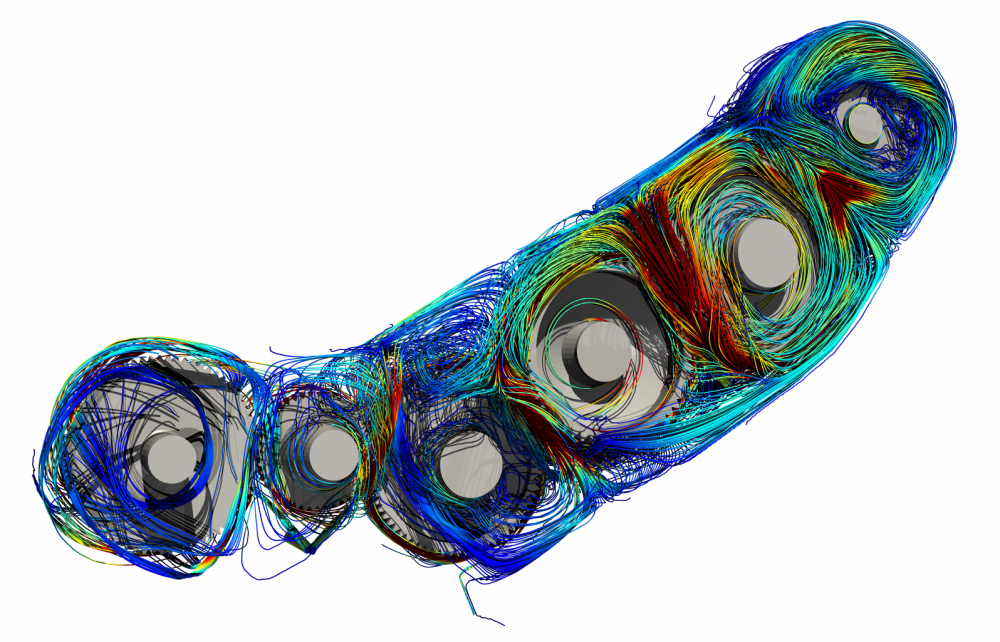Comparison of Common GPU Models: NVIDIA V100, NVIDIA A100 and NVIDIA A40
Systems
- DGX-1
- 8x NVIDIA V100 (16 GB)
- Oracle BM.GPU4.8
- 8x NVIDIA A100 (40 GB)
- Supermicro AS 4124GS TNR
- 8x NVIDIA A40 (48 GB)
- nanoFluidX Software Stack
- nanoFluidX 2022.3 with single precision floating point arithmetics
Results
- Minimal Cube
- Simple cube of static fluid particles in rest

Figure 1.
- Dambreak
- Collapsing water column under gravity in domain (indicated by lines)

Figure 2.
- Altair E-Gearbox
-

Figure 3.

Figure 4.
- Aerospace Gearbox
-

Figure 5.

Figure 6.
Additional Notes
- Performance data in the graphs is always relative to one V100 on the DGX-1.
- All cases were run with the WEIGHTED particle interaction scheme.
- All cases were run in single precision.
- All solver output has been deactivated to focus on solver performance, but generally this does not change the results significantly.